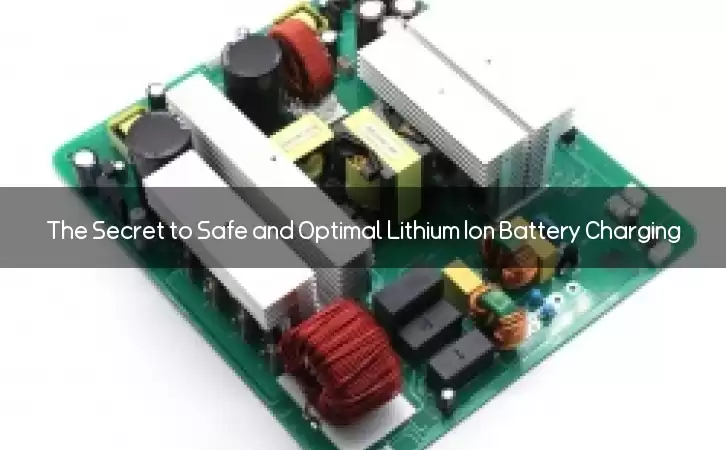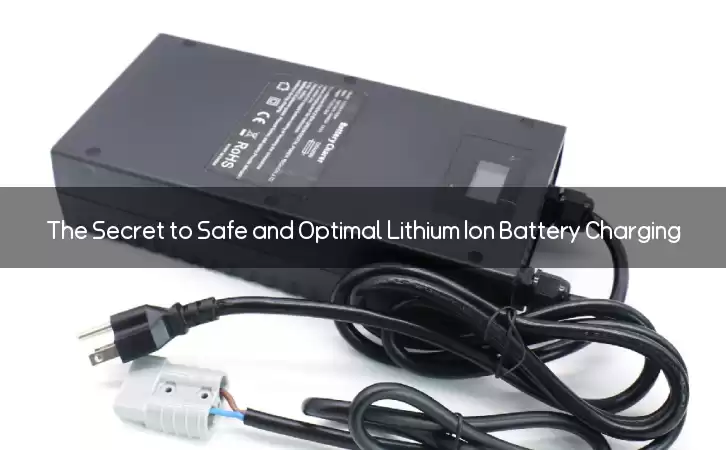Information Center
The Secret to Safe and Optimal Lithium Ion Battery Charging
Published:2023-05-05 19:42:39 Author:Green WCND Views:50Lithium ion batteries are becoming increasingly popular in our technology-driven world. From smartphones to laptops, electric cars to solar panels, lithium ion batteries are powering our devices and vehicles. As such, the question of whether or not lithium ion batteries need a special charger is an important one.

The short answer is yes, lithium ion batteries do need a special charger. This is because these batteries have a specific charging cycle that must be followed in order to ensure safety and optimal performance. Using the wrong charger could not only damage the battery but also pose a safety risk. So, what makes a charger “special” for lithium ion batteries?

To understand this, it’s important to first understand how lithium ion batteries work. These batteries contain a cathode, an anode, and an electrolyte. When the battery is charged, lithium ions are moved from the cathode to the anode via the electrolyte. When the battery is discharged, this process is reversed and the lithium ions move from the anode to the cathode.
The charging process for lithium ion batteries must be done carefully to prevent overcharging, which can lead to heat build-up and other safety hazards. Additionally, using the wrong charger can damage the battery by charging it too quickly or at the wrong voltage. This can reduce the lifespan of the battery and in some cases, render it unusable.
So, what should you look for in a charger for your lithium ion battery? The first thing to check is the voltage and amperage. Every lithium ion battery has a specific voltage and amperage range that it can safely handle. The charger should be rated for this range, which can usually be found on the battery itself or in the device’s manual.
Additionally, the charger should have safety features such as overcharge protection, over-discharge protection, and short-circuit protection. These features can help prevent accidents and prolong the life of the battery.
It’s also important to avoid using counterfeit chargers or chargers that are not recommended by the manufacturer. These chargers may be cheaper, but they can pose serious safety risks and may not properly charge the battery. Stick with chargers that are recommended by the manufacturer or reputable third-party brands.
In conclusion, lithium ion batteries do need a special charger. Using the wrong charger can be a safety hazard and can damage the battery. Look for a charger that is rated for the specific voltage and amperage of your battery, has safety features, and is recommended by the manufacturer or reputable third-party brand. By following these guidelines, you can help ensure your lithium ion battery operates safely and optimally.
Power Adapter Design and Customization Guide for Portable Electric KettlesI. Common Design Types for Portable Electric Kettle Power AdaptersPortable electric ke···
I. Common Design Types of Power Adapters External Independent Type (Most Common) Design: A standalone adapter (e.g., "black brick") connected to the p···
Handheld Vacuum Cleaner Power Adapter Selection GuideIntroductionHandheld vacuum cleaners have become a mainstream tool for household cleaning due to their port···
Drill Power Adapter Selection Guide.drill-container { font-family: Arial, sans-serif; line-height: 1.6; max-width: 800px; margin: 0 auto; padding: 20px; } .dril···





